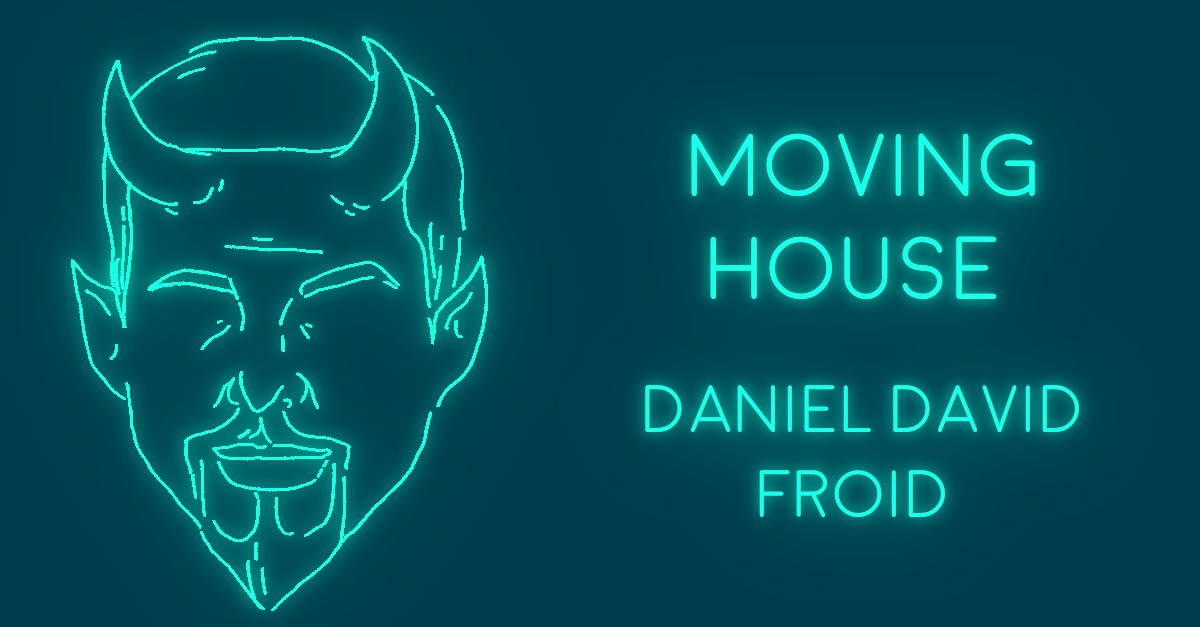Their first apartment was his, Peter’s, too small, too cluttered, the top floor of a creaking Victorian a few blocks south of downtown. Fred moved in on a hot day in May, each man taking turns hauling boxes from Fred’s car up three narrow flights of stairs. When, later, they sat on Peter’s ratty couch eating the dinner that Peter had made, each wondered if he’d made the right choice.
This was the first of many summers when, as grad students, they had no money. Fourteen-thousand-dollar stipends only go so far. They ate a lot of pasta, enlivened with pasta water, red pepper flakes, and the nutritional yeast Peter bought in bulk at the health food store. Peter had developed an interest in eating more healthily, which he executed feebly. They made friends, sort of, with the cashier, who was cute except for the fact that he had twisted his brownish-blonde hair into dirty-looking dreadlocks. Sometimes Fred pictured the cashier without clothes. Sometimes he pictured a scene in which he led the cashier, with tremendous care, to a cushioned seat, where he allowed the man to rest his head gently on a satin pillow, and then he cut off all his hair. Once, he described this fantasy to Peter in terms that he, Peter, found oddly arousing. When he admitted this to Fred, Fred laughed and thought about kissing him.
That first summer, Fred spent many days at the public library two blocks away. He spent, he told Peter, nothing but time. He said he spent his days reading books and sometimes old newspapers, scrolling through headlines on the microfiche reader. One day, he came home and told Peter that a child had died in their house, under mysterious circumstances, in 1989.
Peter asked what had happened. The circumstances, repeated Fred, were mysterious. The child died.
They moved in September when the lease expired. Peter said it would be a relief to leave; the place had given him the creeps since he had learned the thing about the child. What child, Fred asked. The one who died, said Peter. Oh, said Fred, I made that up.
Their second apartment was a duplex, half of a shitty rotting building whose front porch was cracked, the landlord told them, by a tree. The tree is growing, she said, inside. She pointed to the concrete steps. Offering neither solutions nor advice, she said, It’s going to keep growing. The way she said it struck them as somehow ominous, also hysterical. Fred repeated it to Peter for months.
This apartment seemed, in some ways, worse than the previous one. It seems smaller, Fred said. It’s not, Peter said, but it’s weird. It was weird. The bathroom was very long and narrow. The living room, with its specific arrangement of windows, doors, and the cold air return on the floor, proved impossible to arrange furniture in. The basement smelled of mildew and verged on unusable. They would duck downstairs to do their laundry and return as quickly as they could. They complained very often about a small room in the corner in which residents once stored coal. This room featured dirt-encrusted walls made of brick on which patches of black mold bloomed. As they took care to remind each other, the rent was cheap and the neighbors quiet.
One day Fred told Peter that he’d read a legend about trees that could grow underground. When they crack the surface, he said, they let the devil out. That’s bullshit, Peter said. No, Fred said, it’s true. This is like the story of the child who died, Peter said. You made it up. Fred shrugged and told him to keep an eye out for the devil. Anyway, he said and paused for several seconds. Then he said: It’s going to keep growing. Peter slugged him.
The crack widened at last and cleaved the porch in two. The tree had effected a crack that, the men saw, was surprisingly neat. The work of the devil, said Fred. Peter shook his head.
Peter sat up in bed that night and realized he was alone; Fred was not lying beside him. The bathroom, he discovered when he checked, was dark and unoccupied. He put on his slippers and went into the living room and then the kitchen, likewise empty, and then he traipsed into the basement. As he descended the stairs, he saw a dim glow issuing from the coal room. The lone bulb emitted a hazy, piss-colored light on Fred, who stood in his underwear with both hands on one wall. Peter heard a sort of hum or hiss. The crack, Fred said. I think it’s growing. Peter attempted with tenderness to reach for Fred’s arm. Fred jumped and moved closer to the wall. The crack, he repeated. Peter looked at the wall and saw, amid the dirty bricks, a thick black line that was, in fact, a rupture. Do you hear that, Fred said. Peter did not answer, but he felt a sudden sense of danger and fear, as well as a flash of self-conscious stupidity. Hey, he said, let’s go upstairs. Fred looked at him with wide and frightened eyes, and a deep sorrow pulsed inside Peter. Hey, he repeated. He grabbed Fred’s right arm then, with greater force, and then the other, and he held Fred in front of him and steered him upstairs and into bed.
The next day, all day, Fred slept. He did not wake up until evening. He said nothing to Peter, and he went back to bed an hour later. The day after that, Peter contacted the landlord about breaking their lease. In haste he found another apartment, on a street called Perdue, which cost more but which they could move into immediately. To the move they relinquished their negligible savings.
Later, Fred asked Peter if he knew why the street was called Perdue. It means, he said, lost. In French. Peter asked why and let Fred tell the story.

